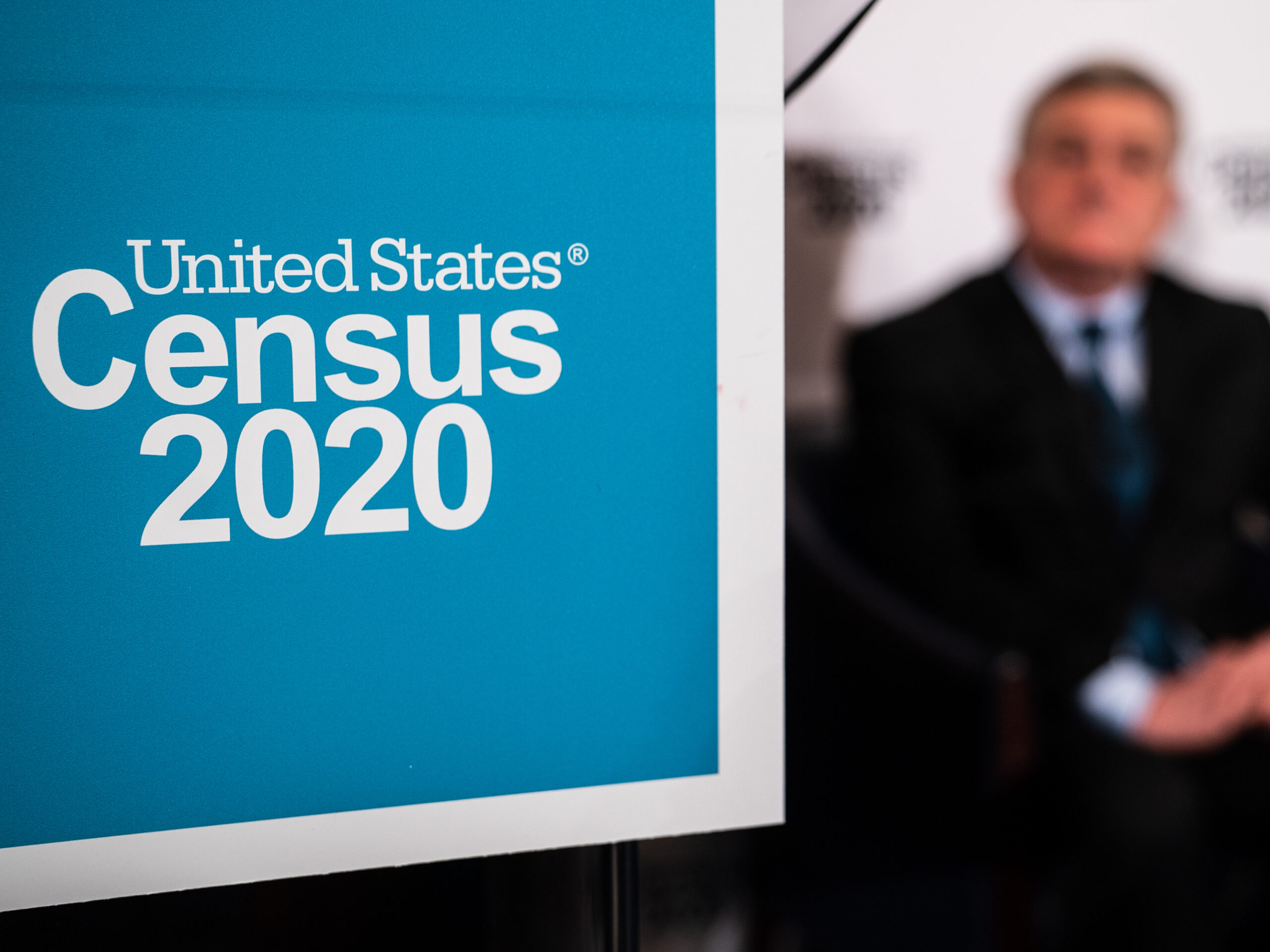The Trump administration appears to have missed its own deadline Monday to start the printing of paper forms and other mailings that will play a key role in next year’s constitutionally mandated head count of every person living in the U.S.
As of Monday evening, the 2020 census materials did not appear to have been officially approved by the White House’s Office of Management and Budget for printing, according to a website tracking OMB’s review process.
In another sign that production has not begun, Justice Department attorneys told a federal judge in Maryland on Monday that the administration has not yet reached a final decision on whether it will try to make another case in court for adding to census forms a hotly contested citizenship question.
U.S. District Judge George Hazel, who is presiding over recently reopened lawsuits over the question, has agreed to hold a hearing on the issue Tuesday, plaintiffs’ attorneys Denise Hulett of the Mexican American Legal Defense and Educational Fund and Shankar Duraiswamy of Covington & Burling tell NPR.
The delay in printing 1.5 billion paper census mailings could throw a wrench into a tightly-wound timetable of final preparations for the 2020 census. The count is scheduled to begin officially in January in rural Alaska before rolling out to the rest of the country by April.
On Monday, President Trump said that his administration is continuing to look “very strongly” at delaying the census. Hours after the Supreme Court announced its decision last week to keep the citizenship question temporarily blocked, Trump tweeted that he wants to wait until the court has more time and information to “make a final and decisive decision.”
Asked why it’s so important to add a citizenship question, Trump said Monday from the Oval Office, “I think it’s very important to find out if somebody is a citizen as opposed to an illegal.”
If included, however, the citizenship question would not ask about a person’s immigration status.
For now, a majority of the Supreme Court has ruled to leave off census forms the question, “Is this person a citizen of the United States?” They noted that the administration’s reasoning for the addition — to better enforce part of the Voting Rights Act — “seems to have been contrived,” while leaving open the possibility of the administration making another case for the question later in court.
For months, the administration’s attorneys have urged the courts to move the lawsuits over the citizenship question along in order to meet the July 1 printing deadline.
“The Census Bureau must finalize the census forms by the end of June 2019 to print them on time for the 2020 decennial census,” wrote U.S. Solicitor General Noel Francisco in a Supreme Court filing submitted in January.
Administration officials have not echoed that urgency publicly since the Supreme Court’s ruling was released days before the printing deadline.
The Census Bureau’s public information office and a spokesperson for the government’s 2020 census printing contractor — R.R. Donnelley & Sons — declined to comment Monday on the record to NPR.
Outside the administration, however, former government officials involved with past census preparations are raising the alarm.
In an interview on Monday, former Census Bureau Director John Thompson called delays in census printing “the biggest risk right now that you can see.”
Thompson, who left the bureau months after the Trump administration came into office, says that he expects that the bureau built in “some slippage” when setting the July 1 deadline to allow for flexibility in starting printing a few weeks later.
“The longer you delay, the more you’re going to have to condense the schedule and the more expensive it’s going to be and the greater the chance for errors to crop up,” Thompson warned.
Although households can participate online and over the phone, most households in the country are still set to receive a letter in March with instructions on how to respond to the 2020 census. Paper questionnaires will be critical for households with limited or no internet access and in case of any major technical breakdowns.
Rushing the production of census materials could lead to printing the wrong addresses or bar codes on letters and forms, which then may not get delivered to the intended households. For the 2000 census, a contractor misaddressed letters by accidentally adding an extra digit to street addresses. Thompson said the bureau was “lucky,” however, because the bar codes on the envelopes were correct.
“It could have been an absolute disaster,” Thompson said.
Census Bureau officials have testified that printing the 2020 census materials could be delayed until Oct. 31 “with exceptional effort and additional resources.”
But Thompson, who worked at the bureau for 27 years before becoming the agency’s director, said waiting until the fall “seems to be extremely risky.”
“There will come a time when there just won’t be enough time,” he said. “There’s only so many printing presses, and there’s only so many hours in the day.”
Katherine Wallman, a former chief statistician at the Office of Management and Budget who was part of the approval process for past census forms, said there could be a way to get at least some census materials — including envelopes, letters and postcards — approved and printed while the fight over the citizenship question continues.
“That’s quite a bit of accompanying material that could be gotten ready in anticipation of the questionnaire itself being approved,” Wallman said.
Before the apparent printing delay, the Census Bureau has already hit multiple bumps on the road to getting materials printed, including a botched contracting process in which the Government Publishing Office originally awarded its single largest printing contract to a bankrupt company.
After a delayed selection process for a new contractor, R.R. Donnelley & Sons won a new $115 million contract in January to produce and mail 2020 census materials.
As recently as two weeks ago, the bureau confirmed in a written statement that it was still preparing for questionnaires to hit the presses beginning on July 1. Asked what additional resources it would need to push back that time frame, the bureau replied that it “does not comment on hypothetical situations.”
Copyright 2019 NPR. To see more, visit https://www.npr.org.
9(MDAxODM0MDY4MDEyMTY4NDA3MzI3YjkzMw004))

9(MDAxODM0MDY4MDEyMTY4NDA3MzI3YjkzMw004))









